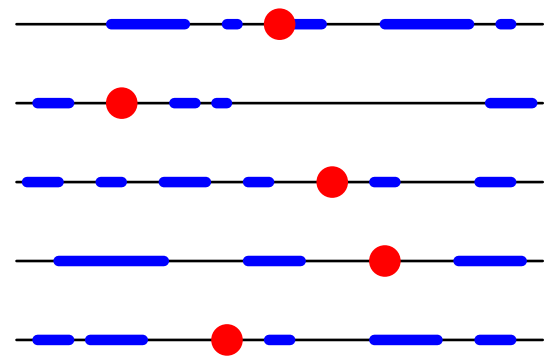Abstract
In many forensic settings, identity of a DNA sample is sought from poor-quality DNA, for which the typical STR loci tabulated in forensic databases are not possible to reliably genotype. Genome-wide SNPs, however, can potentially be genotyped from such samples via next-generation sequencing, so that queries can in principle compare SNP genotypes from DNA samples of interest to STR genotype profiles that represent proposed matches. We use genetic record-matching to evaluate the possibility of testing SNP profiles obtained from poor-quality DNA samples to identify exact and relatedness matches to STR profiles. Using simulations based on whole-genome sequences, we show that in some settings, similar match accuracies to those seen with full coverage of the genome are obtained by genetic record-matching for SNP data that represent 5–10% genomic coverage. Thus, if even a fraction of random genomic SNPs can be genotyped by next-generation sequencing, then the potential may exist to test the resulting genotype profiles for matches to profiles consisting exclusively of nonoverlapping STR loci. The result has implications in relation to criminal justice, mass disasters, missing-person cases, studies of ancient DNA, and genomic privacy.
